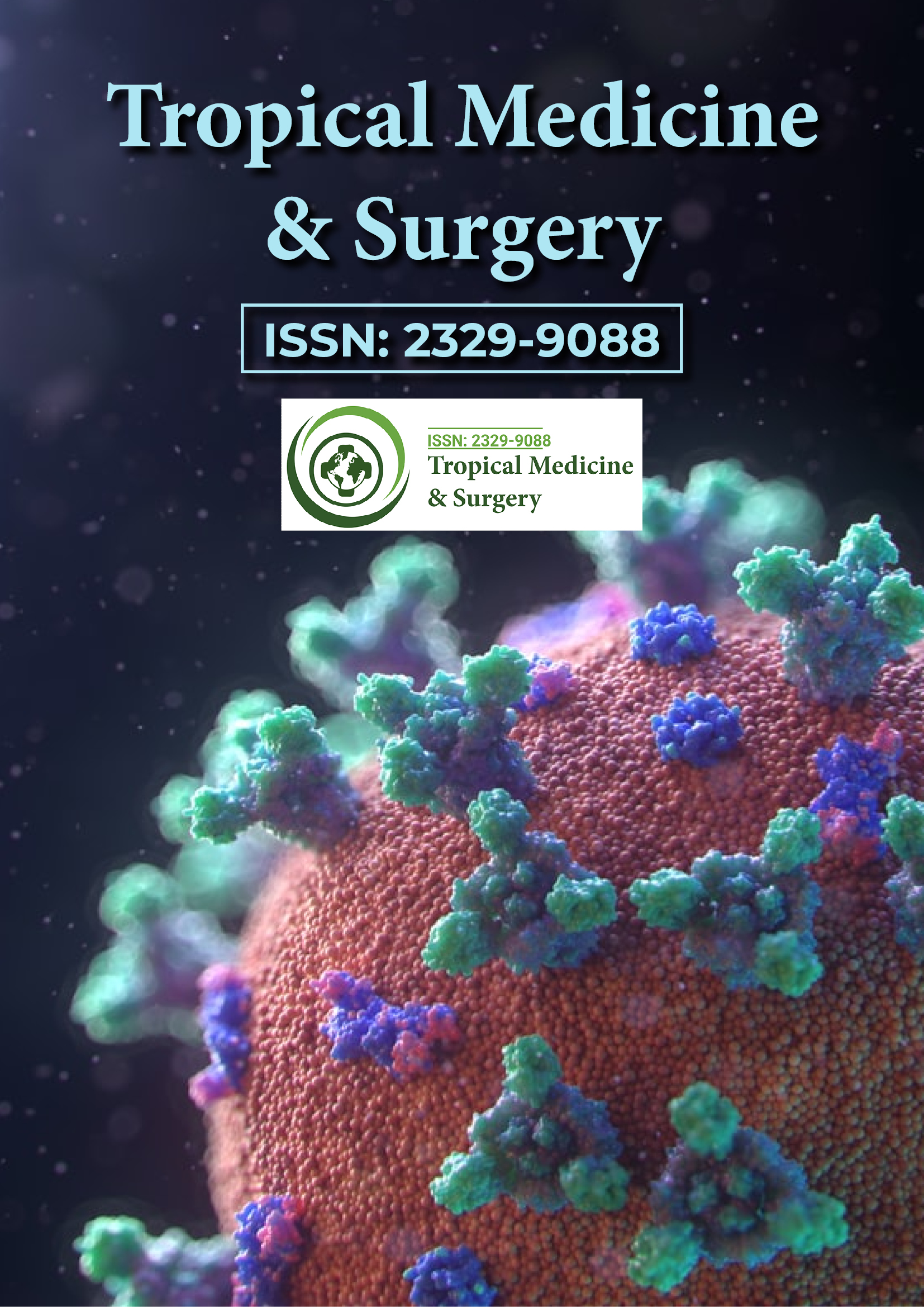Indexed In
- Open J Gate
- Academic Keys
- RefSeek
- Hamdard University
- EBSCO A-Z
- OCLC- WorldCat
- Publons
- Euro Pub
- Google Scholar
Useful Links
Share This Page
Journal Flyer

Open Access Journals
- Agri and Aquaculture
- Biochemistry
- Bioinformatics & Systems Biology
- Business & Management
- Chemistry
- Clinical Sciences
- Engineering
- Food & Nutrition
- General Science
- Genetics & Molecular Biology
- Immunology & Microbiology
- Medical Sciences
- Neuroscience & Psychology
- Nursing & Health Care
- Pharmaceutical Sciences
Commentary - (2021) Volume 9, Issue 4
Knowledge and History of Clinical Tropical Medicine
Shreyas Adwick*Received: 24-Sep-2021 Published: 15-Oct-2021, DOI: 10.35248/2329-9088.21.9.239
Description
Knowledge of clinical tropical medicine is essential for every researcher. The diseases are no longer restricted by geographic boundaries because the scope and speed of air travel and flows of infections are being started these days and people have destroyed the barriers of time and space, and the massive increase in international migration in the past half century makes us all to form a global community.
The detection of tropical illnesses is depends on an awareness of their very existence, and on understanding their pathogenesis, signs, and symptoms. These fundamental facts are rarely taught in any depth in Western medical schools, and the diseases consider the world-rate only passing attention in the temperate climates.
In some European nations, though, there has been a traditional interest in the diseases of the tropics, an interest developed during the colonial period. In these countries there are still major schools (and hospitals) specializing in tropical medicine. Financial support for these institutions however, waned in recent decades as the pressures to treat and investigate domestic ailments steadily escalate. Tropical medicine should seek financial support from organizations majorly for developing and under developing nations.
There are no schools or hospitals specializing in this discipline, and only a minuscule percentage of our national research budget is allocated to these major albeit neglected diseases. The economic realities of prolonged postgraduate training in the tropics.
Tropical Medicines were virtually synonymous with colonial medicine and replied on the agencies of the colonial state or the patronage of imperial commercial networks for its sustenance.
For medical researchers in the British Empire, tropical medicine represented opportunities for advancement through new discoveries and challenges, glamour and the lure of exotic field locations in which to practise their science.
Among colonial officials and the public produced optimism about controlling epidemic disease within European colonies through carefully managed programmes of containment or eradication. Its practices were sponsored by the colonial states or by private entrepreneurs who had commercial interest in specific areas and diseases.
Tropical medicine occurred in the imperial age and its context was the consolidation of colonialism itself. Colonial experiences generated the need for tropical hygiene and eventually tropical medicine. Colonial realities informed modified and occasionally challenged metropolitan sciences, social contexts often formed an integral part of the ecology of the imperial science. The advances in tropical medicine in treating malaria, sleeping sickness and yellow fever to god like gift and speculated that these would mean civilization and prosperity for vast possessions in the tropics.
Yellow fever and trypanosomiasis extended beyond local outbreaks to continent wide epidemics in the Caribbean and some other places respectively as a consequence of the large scale migration of people and livestock in response to a range of colonial economic and military policies as did malaria within south countries. Tropical medicine achieved progress in researching and conducting anti-vector and anti-parasite programmes. Therefore the plantations regularly carried out studies on black water fever and anti-cholera sanitation and conducted hook warm eradication programmes and anti-cholera sanitary measures with the aid of government grants and the expertise of tropical medicine.
Citation: Adwick S (2021) Knowledge and History of Clinical Tropical Medicine. Trop Med Surg. 9: 239.
Copyright: © 2021 Adwick S. This is an open-access article distributed under the terms of the Creative Commons Attribution License, which permits unrestricted use, distribution, and reproduction in any medium, provided the original author and source are credited.
